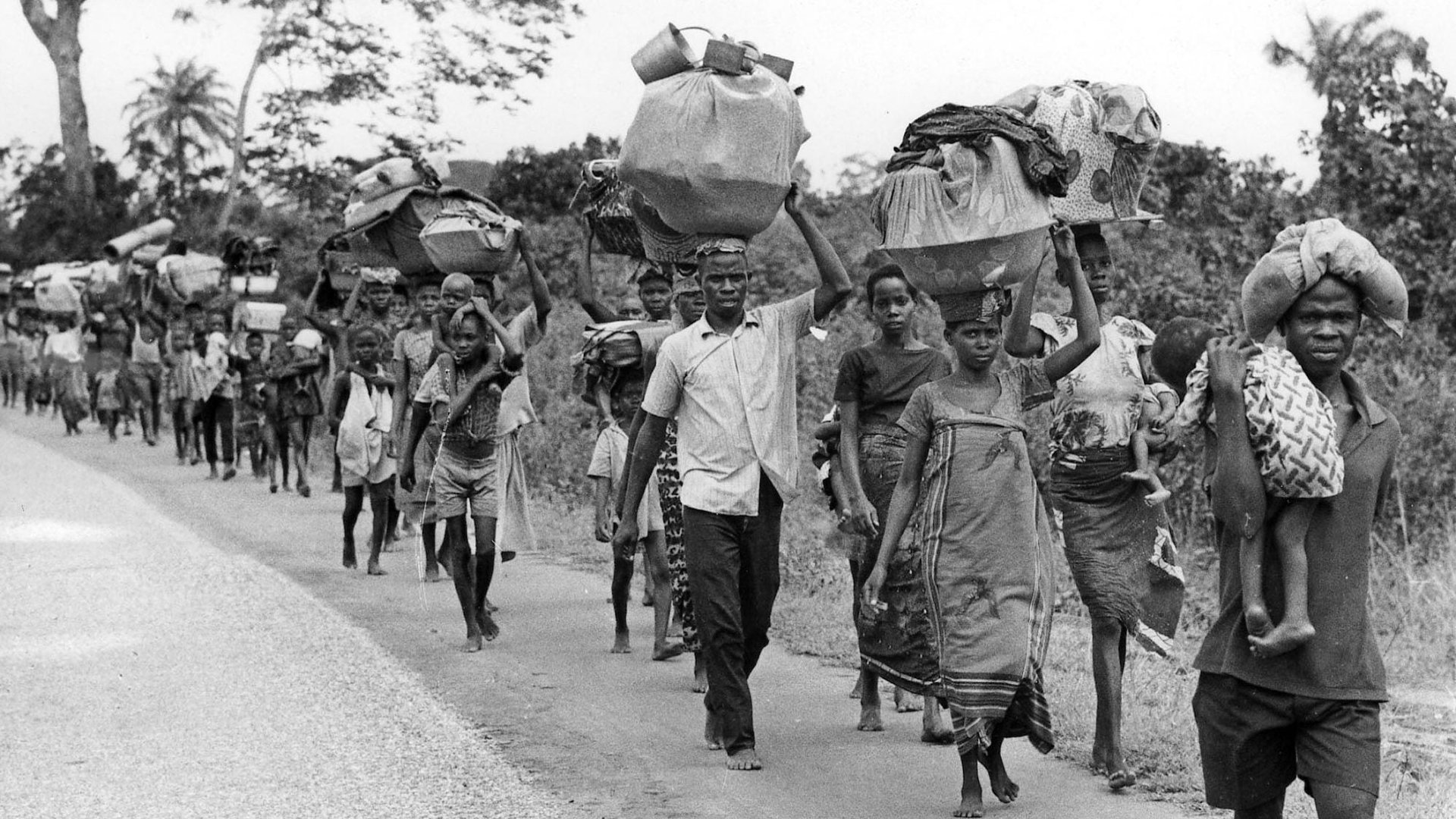It’s taken 50 years, but Nigeria is finally compensating victims of the brutal Biafra war
In a rare attempt to heal the scars of the Biafra war which ended 47 years ago, Nigeria’s government has agreed to pay victims of the war $139 million in compensation. The government will spend a further $105 million to evacuate abandoned bombs in parts of the country.


In a rare attempt to heal the scars of the Biafra war which ended 47 years ago, Nigeria’s government has agreed to pay victims of the war $139 million in compensation. The government will spend a further $105 million to evacuate abandoned bombs in parts of the country.
Government experts have screened and identified 685 persons as survivors of the war. Nearly 500 of them, including those who originally sued the government, were confirmed to have been victims of military mines and bombs and will be entitled to the compensation. The compensation was the result of an out-of-court settlement following a suit filed against the government back in 2012.
The settlement comes after months of increased tensions in Nigeria’s south-east amid renewed calls for secession to create an independent Biafra nation by Indigenous People of Biafra (IPOB). Last month, Nigerian troops deployed to the region clashed with IPOB members reportedly leaving four members of the group were dead while Nnamdi Kanu, the group’s self-appointed leader, has not been seen in public since. Soon after, Nigeria declared IPOB a terrorist organization citing its “possession and use of weapons.”
While the compensation which will likely placate some in the south-east, many will hope it also signals a change in the government’s general disposition to discussing the war which remains a taboo subject in Nigeria. Last month, a radio program commemorating the 50th year of the Asaba massacre (a two-day long slaughter of over 700 ethnic Igbos at the start of the Biafra war) was cut short following intervention by government regulators.
Cheta Nwanze, a Lagos-based researcher whose grandfather was killed during the war, says “as it’s too late for reconciliation programs,” more discussions about the war will play a further role in helping those affected heal the scars of war. ”What we need is for every side to be allowed to tell its story, at least for the cathartic effect,” he said.